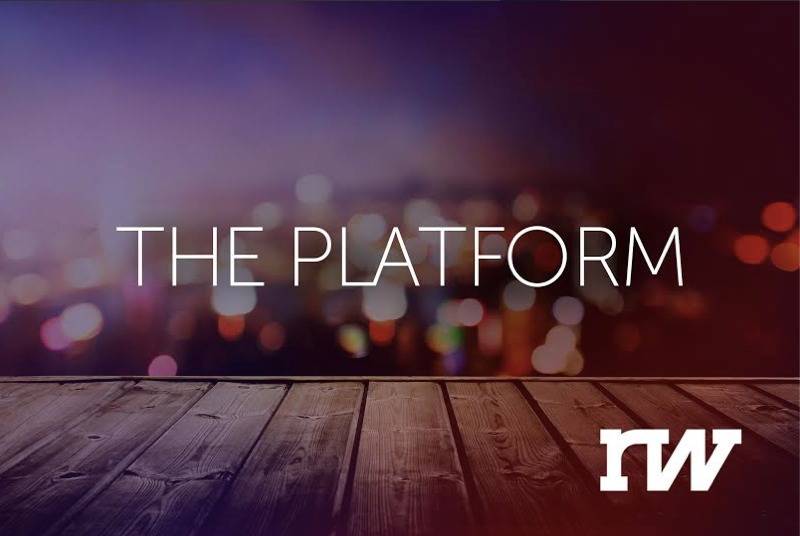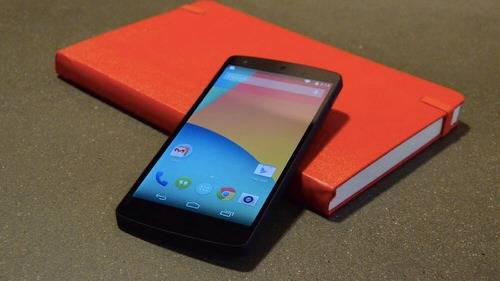
The Platform is a regular column by mobile editor Dan Rowinski. Ubiquitous computing, ambient intelligence and pervasive networks are changing the way humans interact with everything.
Any artist that’s ever dealt with copyright will tell you one basic fact: Copyright is the most confusing, convoluted and capricious aspect of intellectual property rights ever created. You thought patents were bad? Delve into the world of copyright and just wait for your head to explode.
This is what makes the imbroglio between Oracle and Google over the use of copyright in Java such a hard case to understand. It could, however, set a dangerous legal precedent for software development for years to come.
The Musician: Licensing Vs. Fair Use
Let’s say I am a musician. I want to cover a song from one of my favorite artists. Technically, I don’t need to get the license of the song if I am just playing it at the local bar. But the venue I am playing at may need to pay a license fee to a rights holder organization to allow for the use of cover songs or DJs in its establishment.
Now, if I am going to release that cover song on my next album (which will be sold for profit), I need to get the rights from the rights holder, which may be a music studio or an individual artist. If I want to use that cover song in a movie, I need to get a different kind of license. One way or another, if I am making money with the cover song, I am going to have to pay somebody else for that privilege.
But what if I’m just using a part of a song—albeit word for word, note for note—in part of my song? Or what if I change the song just enough so that it’s not technically a cover but my own original representation inspired by the original performance? That could be considered “fair use,” a legal doctrine where short portion of original copyrighted works can be used verbatim in a fair and reasonable way that does not impair the value of the materials or take profit away from copyright owner.
Quick Thought: The Fast Lane & Reclassification
If you or your company wants faster Internet service, you may have to pay to be in the “fast lane” in the near future. That’s what the broadband and cellular carriers want to happen and would violate the concept of Net Neutrality that is the biggest issue facing Internet technology and innovation today.
According to The Wall Street Journal, Federal Communication Commission chairman Tom Wheeler wants to prohibit this concept of two Internets through regulation and policy currently being debated. The Commission is debating whether or not a “paid prioritization” model should be adopted in its latest proposal over Net Neutrality and nobody outside the broadband providers likes the idea, especially content-heavy companies like Netflix and Google.
If Wheeler ever really wants to make substantial and lasting policy, the FCC will eventually have to reclassify broadband as a public utility and take control over all regulation of Internet access. Reclassification would be Wheeler’s nuclear measure and the FCC could face lawsuits for years from the broadband companies to get it to stick. At some point, policy debate and compromise is just not a viable option and reclassification may be the only way to go.
The fair use vs. licensing rights battle has played out thousands of times between artists, especially when it comes to using the same work for different media like television, film, live performances, digital and physical storage. What is significant in the Oracle vs. Google copyright lawsuit is that this artistic nature of copyright is now being applied to computer code.
What makes the Oracle and Google fight so important is not (really) the specifics of what Google may or may not have copied in terms of Java APIs for use in Android. The danger is in applying copyright to a computer language and the far-reaching impact that could have on the software industry.
Pandora’s Programmer
If you are unfamiliar with the specifics of the Oracle and Google case, the synopsis is pretty straightforward: Google wanted to use Java to build Android. Google did not believe it needed a license from Oracle to use Android if it changed the specifics of how the Java APIs were used. Google then went on to basically write its own version of Java APIs for Android. In doing so, Google uses a similar style and structure as the original Java, but in some cases used similar categories, headers and objects within the code. (This is the “structure, sequence and organization” that the court documents mention over and over again.)
In the millions of lines of code that Google wrote for Android, about eight lines were direct copies from Oracle’s Java, while the look of the APIs was very similar but written differently.
As one ReadWrite commenter put it last week, “Google basically [thought] that Java sucked for its purposes so they copied the ‘table of contents’ and then rewrote the book themselves to be ‘better.’”

If we compare what Google did with Java for Android and the case of the musician above, where does the line fall between the need to license the original work and the fair use to create an original representation?
The original jury in the case could not answer that question. Judge William Alsup ruled in place of the jury that the API elements Google copied—i.e., their names and organization—weren’t subject to copyright, a win for Google. Alsup’s ruling mooted the fair-use question.
But a federal appeals court just overturned Alsup’s ruling, saying APIs are copyrightable—that’s a win for Oracle. The appellate panel returned the case to the lower court for a ruling on Google’s fair-use claim.
Part of Oracle’s argument is that it’s protecting Java from fragmentation and interoperability issues for developers. This argument rings a little hollow when considering how Java has been forked several times over by companies and individual developers for their own purposes, and that there are already dozens of competing programming languages that share many of the same properties and principles with Java to achieve similar goals. Essentially, the world of computer programming languages has been fragmented for decades.
What Oracle is doing is attempting to create a legal precedent to protect its own corporate interests and sell more licenses and the support that goes with them. Third-party briefs filed in the case—from the likes of Microsoft and IBM—support Oracle’s stance because it preserves the business models of those particular companies as well.
But developers are not exactly enthused with the ruling. By protecting its own selfish interests, Oracle is opening a Pandora’s box that could have much wider impact than just its fight with Google.
“While the goal of avoiding fragmentation of Java that has been Oracle’s stated intent in pursuing this has some merit, we’re not comfortable with the idea that copyrighting APIs is the way to accomplish this,” said Apigee’s VP of product strategy Ed Anuff. “It’s likely going to have the opposite effect, causing the proliferation of convoluted APIs for no other reason than to avoid the potential of legal exposure. That’s a no win proposition for anyone involved.”
The fear within the software industry is that copyright will become the new favorite weapon of corporate lawyers everywhere. If patent troll lawsuits become an insufficient means to hurting competitors in court, companies may just turn to the copyright route to damage their competitors, opening up the potential for an explosion of lawsuits and injunctions.
What Happens To Android?
What Android developers want to know is, “How does this affect me?”
In the short term, it doesn’t.
The case has been remanded back to the original district court for now, but Google is likely to take it all the way to the United States Supreme Court. So while the case is still being adjudicated, Android is going to continue with business as usual. If the Supreme Court hears the case, it will be months at the very least, if not a year or more, before a decision comes that would affect Google, Android and developers.
Quote Of The Day: “I don’t trust them not to detain me, interrogate me and even arrest me. Their behaviour has been so extreme and offensive, and the political and media class was so supportive of it, that I feel uncomfortable with the entire atmosphere.” ~ Journalist Glenn Greewald on his reluctance to enter the United Kingdom after publishing Edward Snowden’s leaked documents on the NSA in 2013.
If Google loses and Android becomes prohibitively expensive (either because Google would have to license Java from Oracle or pay a large lump sum in damages), it would change the free and open source nature of the Android Open Source Project (AOSP). What Google would do then is anybody’s guess. Android is so big with so many installed phones that the general thought is that Google would somehow make it work.
In the meantime, Google could fundamentally change Android development, going with its own non-Java languages that have been in development such as Go and Dart. If Google goes down this road, it will make developers learn new languages that would further fragment the software development ecosystem and affect hundreds of thousands of developers and a million apps. Google would love to make Go the premier language to replace the likes of Java and C++, but it will face opposition on that front from a variety of sectors.
Google already employs a non-Java compiler in open source Dalvik for Android that compiles Java into bytecode (machine code) to run on a device. Dalvik replaces the need for a Java Virtual Machine complier in Android and Oracle is none too happy about that. Dalvik will soon be replaced with its next version built by Google, Android Runtime. Just like the compiler, Google could pragmatically move pieces of Android off of Java and wipe its hands of Oracle all together. That is not an easy, or fast, process.
Oracle’s best interest is to create a continuing revenue stream from Google over Android, so killing off Android itself is not (or should not) be its primary goal. The threat to Android is more existential than tangible at this point with the larger issue here the use of copyright in software development.
More on Oracle, Google & Copyright
- Vox employs its powers of explanation on the court case, with Timothy B. Lee offering the headline, “The court that created the patent troll mess is screwing up copyright too.”
- Corynne McSherry of the Electronic Frontier Foundation weighs in on the appeal. McSherry says, “the implications of this decision are significant, and dangerous.“
- Wired reporter Robert McMillan writes that Oracle’s win is bad for everybody.
- When we contacted Google for comment on the appeal, Google’s global communications and public affairs manager for patents Matt Kallman suggested we read this article from two guest authors at TechCrunch published last year.
- Russell Brandom from The Verge says the appeal sets a dangerous precedent.
Correction, 3pm PT: An earlier version of this story misstated Judge Alsup’s original ruling in the Oracle-Google case. The judge found that the API elements copied by Google were not covered by copyright.
Correction, 5:02pm PT: An earlier version of this story included an erroneous reference to the programming language Rust; it was developed at Mozilla, not Google.





























